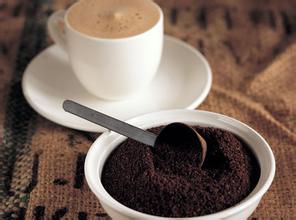El Salvador Himalayan Coffee Flavor description Fine Coffee characteristics Manor introduction
The latest government of El Salvador was formed in June 2014. The main cabinet members are Vice President Oscar Ortiz (Oscar Ortiz), Foreign Minister Hugo Roger Mart í nez Bonillia, Finance Minister Carlos C á ceres, economy Minister Tharsis Salom ó n L ó pez, Defense Minister David Mungui í a Pay é s. Sandra Eddiwell Guevara Perez, Minister of Labour and Social Security (female, Sandra Edibel Guevara P é rez), Minister of Agriculture Orestes Autes (Orestes Ortez), Minister of Public Health Violeta Menshiwar (female, Violeta Menj í var), Minister of Public works, Transport, Housing and Urban Development Gerson Mart í nez, Minister of Environment and Natural Resources Lina Lina Pohl Tourism Minister Jose Napole ó n Duarte (Jos é Napoleon Duarte) Sanchez Salem is president of El Salvador. He was born on June 18, 1944 in Xattepec, El Salvador. After graduating from Alberto normal School, he taught in a primary school in his hometown for 10 years. He participated in the creation of the first left-wing armed force in El Salvador, the Farabondo Marti people's Liberation Forces, in 1970 and became general secretary of the organization in April 1983. Since then, the organization has joined forces with other left-wing political and military groups in Saudi Arabia to form the Marty Front. In 1992, he participated in the signing of the Peace Agreement that marked the end of the civil war in Saudi Arabia. He served as General Coordinator of the Marty Front twice from 1994 to 1997 and from 2001 to 2004. He was elected for three consecutive terms from 2000 to 2009, and served as the leader of the parliamentary caucus of the Marty Front from 2006 to 2008. Served as Vice President and Minister of Education from June 2009 to June 2014. In March 2014, he was elected President as a candidate of the Marty Front and took office on 1 June for a five-year term.
The Republic of El Salvador, located in the north of Central America, is the most populous country in Central America. The country is bordered by Honduras to the north, the Pacific Ocean to the south and Guatemala to the northwest. The national economy is dominated by agriculture, and the main crops are coffee and cotton. El Salvador is also one of the birthplaces of ancient Mayan culture, with not only distant culture, but also beautiful scenery such as volcanoes, plateau lakes and beaches along the Pacific coast.
The topography here is mainly mountainous and plateau, with many volcanoes. Savanna climate. The plain area belongs to the tropical rain forest climate and the mountain area belongs to the subtropical forest climate. The average annual temperature is 25-28 ℃, and the annual precipitation is more than 1800 mm in mountainous areas and about 1000 mm in coastal areas. It is rich in water resources, short and swift rivers and volcanic lakes.
El Salvador's coffee accounts for 40% of the country's exports, and it is usually picked in November, December and January-March of the following year. The export of raw beans lasts almost all year round. Coffee is produced in seven of the country's 14 provinces, with the largest number in the northwestern provinces of chalatenango and santa ana. El Salvador produces 100% Arabica coffee, 68% of which is bourbon, which usually grows at an altitude of 1062 Mel 1972 meters. On the other hand, El Salvador has a unique mountain, river and plateau, which provides a suitable environment for the growth of bourbon coffee. At the same time, El Salvador's suitable temperature, abundant precipitation and fertile soil are also indispensable natural conditions for breeding high-quality coffee beans. Salvadoran coffee, like other typical island beans, is well-balanced, soft and good in texture.
Central American countries generally distinguish quality grades by altitude, such as Costa Rica, Guatemala, Mexico, Honduras and other countries. Similarly, El Salvador is graded by altitude. At high altitudes, due to the cold climate and slow coffee growth, the density of raw beans will be higher, the hardness will be stronger, the unique acidity of Arabica will be better, and of course the better the quality will be. Therefore, the higher the altitude of coffee growth, the better the flavor, on the contrary, the lower the altitude, the higher the temperature, the faster the growth rate, the lower density, the lower hardness and the worse quality of raw beans.

Important Notice :
前街咖啡 FrontStreet Coffee has moved to new addredd:
FrontStreet Coffee Address: 315,Donghua East Road,GuangZhou
Tel:020 38364473
- Prev

Introduction to the characteristics of Panamanian Cupid Coffee Flavor description and Grinding degree treatment
Panama has been among the world's best coffee producers since three years ago, surprising countries that have been in the vanguard of developer production for many years. Panamanian coffee is mainly produced in the west near the Costa Rican border, producing the best washed coffee. Compared with coffee beans grown at low and middle elevations, the low temperature and stable climate in the high elevations of Panama
- Next

Introduction to the Variety characteristics of Sunshine Yega Shifeiwaka Coffee Flavor description
Yega Chuefei exudes an extremely complex aroma and shows an extremely excellent taste that is difficult to describe. In general, the dry aroma of Yega Chuefei is full of fruit, with strong aromas of dried fruit, strawberry, mango and apricot jam. Wet fragrance is like sweet syrup, like sticky apricot juice, wrapped in plain honey or chocolate. The entrance is not strong and the alcohol is thick.
Related
- Detailed explanation of Jadeite planting Land in Panamanian Jadeite Manor introduction to the grading system of Jadeite competitive bidding, Red bid, Green bid and Rose Summer
- Story of Coffee planting in Brenka region of Costa Rica Stonehenge Manor anaerobic heavy honey treatment of flavor mouth
- What's on the barrel of Blue Mountain Coffee beans?
- Can American coffee also pull flowers? How to use hot American style to pull out a good-looking pattern?
- Can you make a cold extract with coffee beans? What is the right proportion for cold-extracted coffee formula?
- Indonesian PWN Gold Mandrine Coffee Origin Features Flavor How to Chong? Mandolin coffee is American.
- A brief introduction to the flavor characteristics of Brazilian yellow bourbon coffee beans
- What is the effect of different water quality on the flavor of cold-extracted coffee? What kind of water is best for brewing coffee?
- Why do you think of Rose Summer whenever you mention Panamanian coffee?
- Introduction to the characteristics of authentic blue mountain coffee bean producing areas? What is the CIB Coffee Authority in Jamaica?

